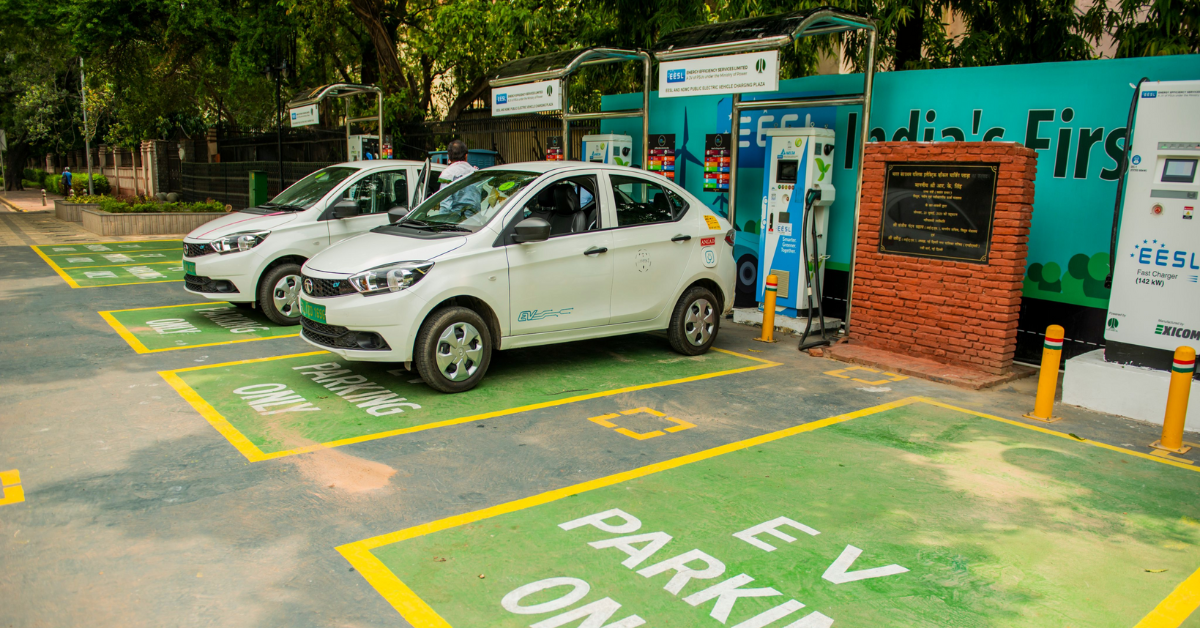In order to establish an overall ecosystem of EV manufacturing and adoption, the Chhattisgarh government will give various subsidies and incentives
The state government will reimburse 100% SGST and registration fees on sale of electric buses and electric goods carriages registered during the five-year period
Chhattisgarh will also allocate 500-1,000 acres of land for developing EV parks with plug-and-play internal infrastructure as well as other necessary external infrastructure
Amid a significant push across the country at both Central and state levels to encourage adoption of electric vehicles (EVs), Chhattisgarh Chief Minister Bhupesh Baghel approved Chhattisgarh Electric Vehicle (EV) Policy 2022 last week.
The policy which was recently approved by the cabinet, aims to make Chhattisgarh a manufacturing hub for both EVs and their accessories, and to also provide employment opportunities.
The Chhattisgarh government aims to have 15% of newly registered vehicles, including both individual and commercial vehicles, as EVs within five years under the policy. The state also aims to procure 4 Lakh EVs in five years till 2026-27.
In order to establish an overall ecosystem of EV manufacturing and adoption, the government will also give various subsidies and incentives.
EV original equipment manufacturers (OEMs), manufacturers of various EV components and batteries, and charging infrastructure would be incentivised with capital subsidy. The government also plans to provide a capital subsidy of 25% to selected energy operators on charging equipment/machinery for the first 300 fast charging stations commissioned in the state. The subsidy cap will be at a maximum of INR 10 Lakh per station.
On the other hand, the state government announced 100% reimbursement of state goods and services tax (SGST) and registration fees on sale of electric buses and electric goods carriages that are registered in the state during the policy period.
The same reimbursement strategy will also be offered for energy operators for the purchase of batteries that would be used in swapping stations. The SGST would also be reimbursed for manufacturing EVs in the state during the policy period.
In order to build an overall strong EV ecosystem, the government plans to build charging stations, mandate establishing proper charging infrastructure in the state’s housing policy, and set up a recycling ecosystem for batteries.
The EV policy also wants to ensure skill development training in the field of EVs.
As per the plan, the Chhattisgarh government will introduce an online portal for providing information regarding EVs, charging infrastructure, and applying for EV-related incentives.
The government will also allocate 500-1,000 acres of land for developing EV parks with plug-and-play internal infrastructure as well as other necessary external infrastructure. Setting up an incubation centre in the EV park for hand-holding startups is also in the pipeline.
Under the policy, the state government is also exploring possibilities of entering into MoUs with manufacturers of Lithium-ion battery cells or EV auto components.
National Push For EVs
Last month, the Haryana government also approved its EV Policy 2022 which has similar plans – from offering several financial incentives to EV manufacturers to providing employment generation subsidies to the EV companies. The Haryana government is also considering declaring Gurugram and Faridabad as model Electric Mobility (EM) cities with phase-wise goals to adopt EVs, charging infrastructure, and achieve 100% e-mobility.
In April, the Maharashtra government also announced its plans to create an EV-focused fund to help EV startups scale operations in the state.
Meanwhile, the Centre is also making several changes to its existing policies and introducing new policies for EVs, especially after the country’s emobility ecosystem came under negative light following multiple cases of fire and other safety incidents.
Helped by the Indian government’s Production Linked Incentives (PLI) scheme for manufacturing advanced chemistry cell (ACC) batteries in the country, the process of in-house Lithium-ion battery and cell manufacturing has also taken off.
Pegged at a $220.1 Mn market valuation in 2020, the country’s EV market size is expected to expand at a compound annual growth rate (CAGR) of 94.4% between 2021 and 2030, as per a report.










